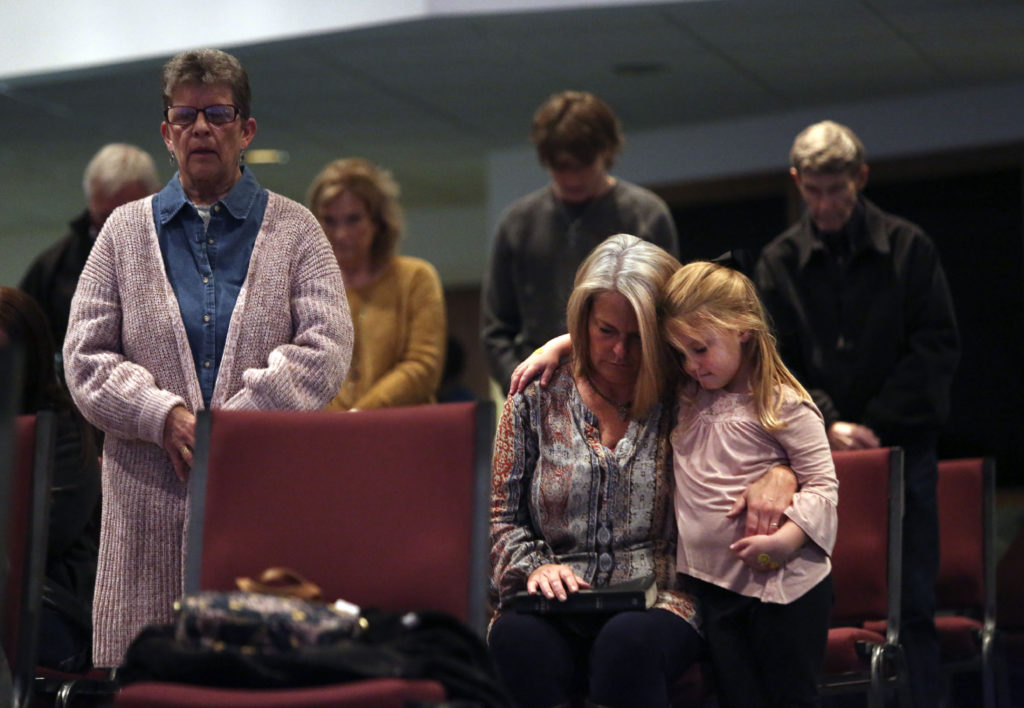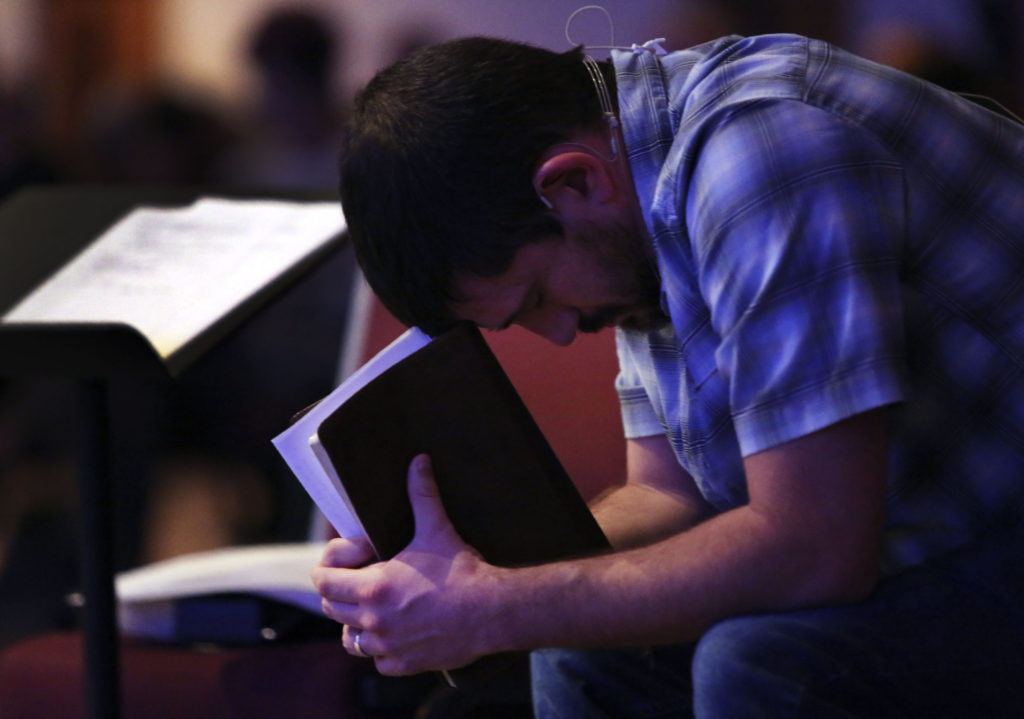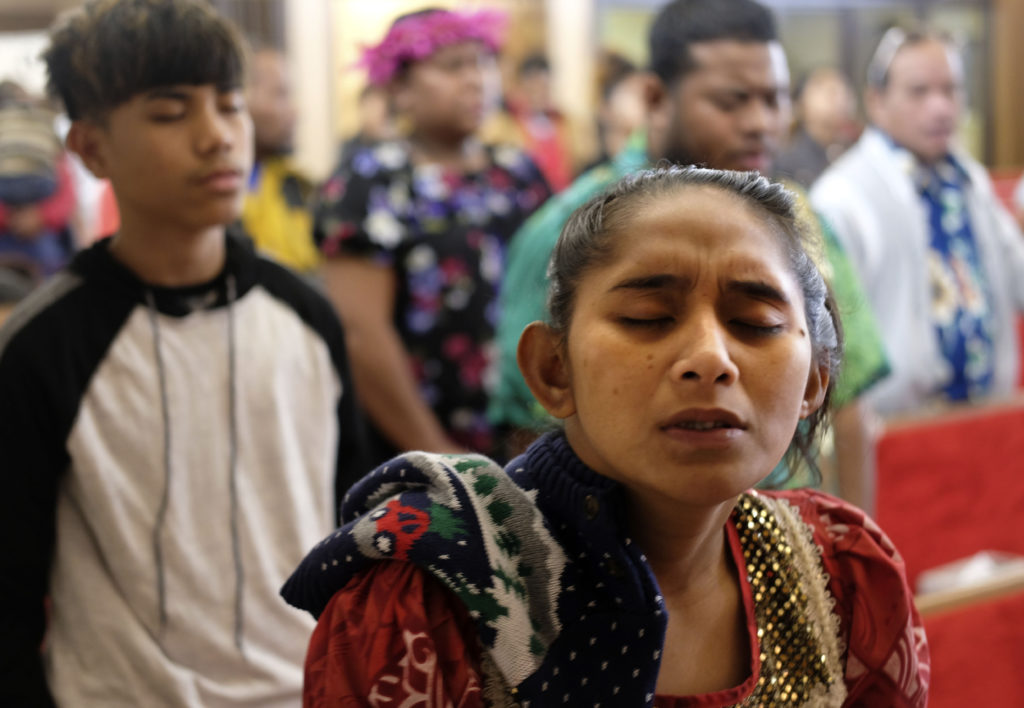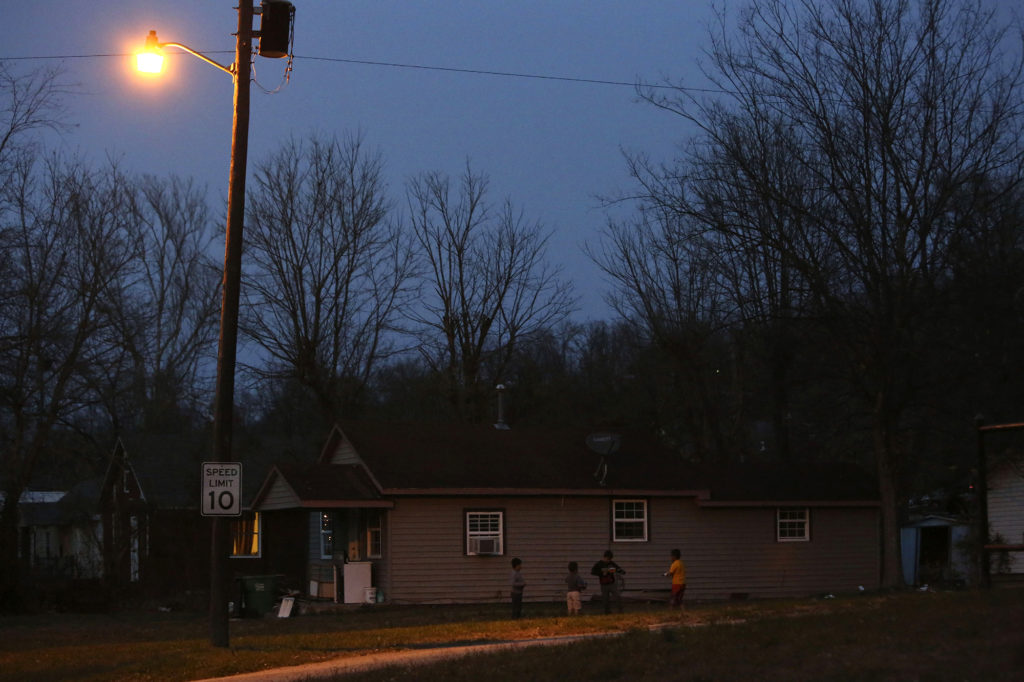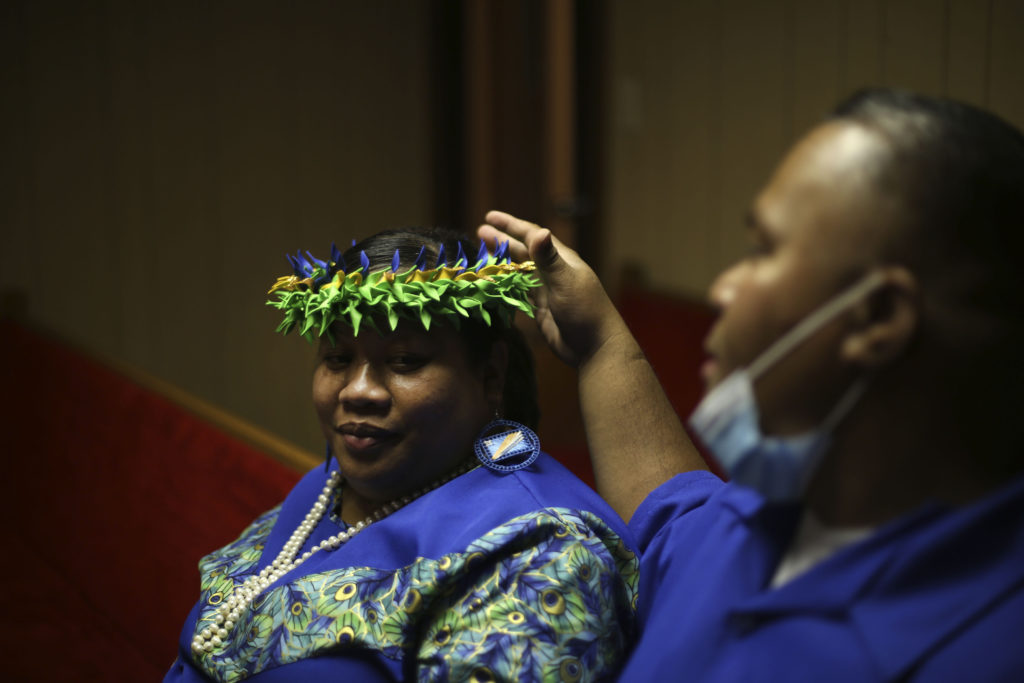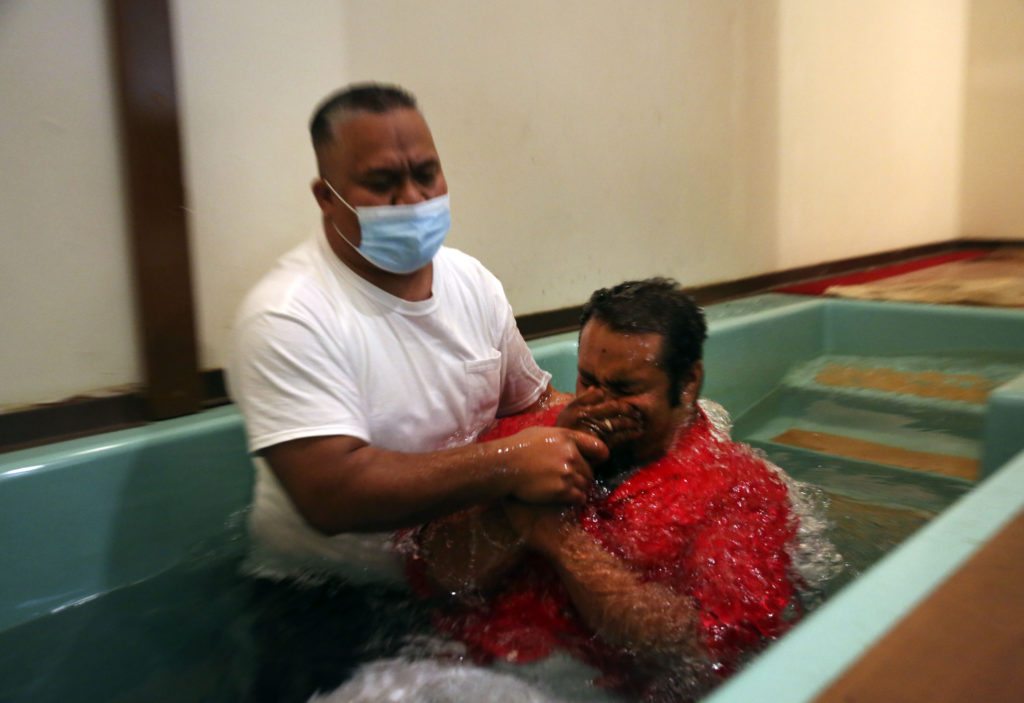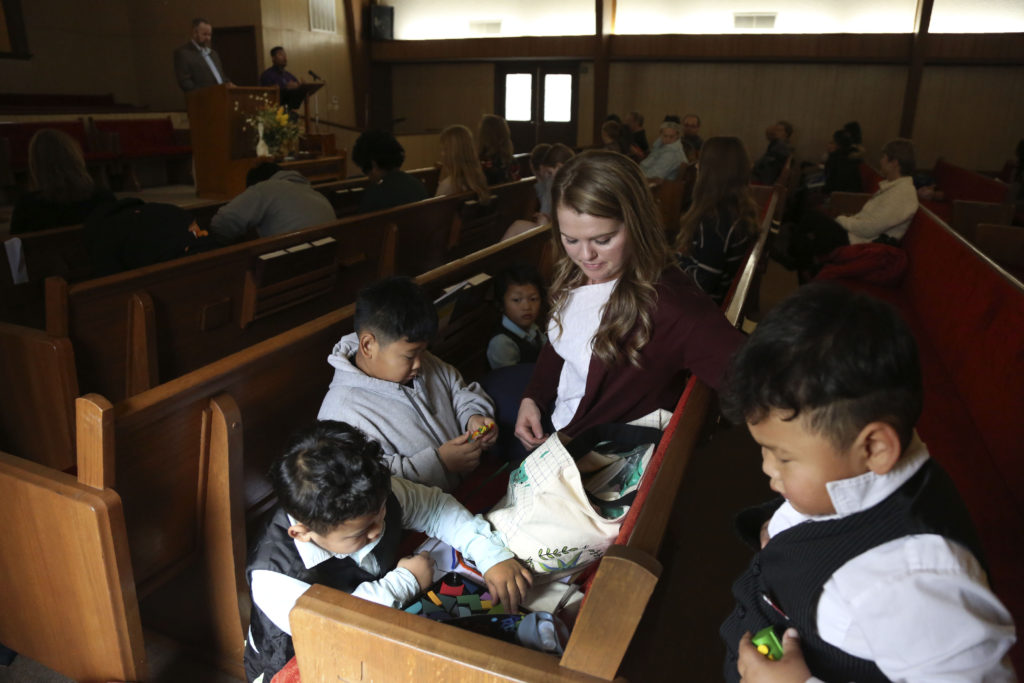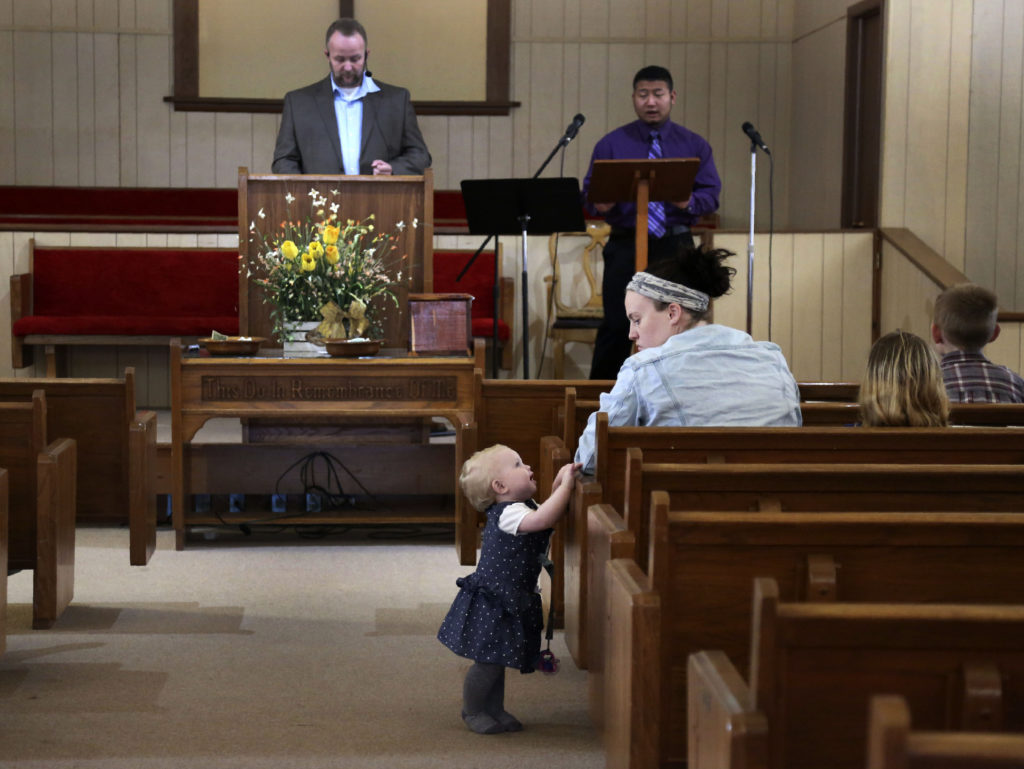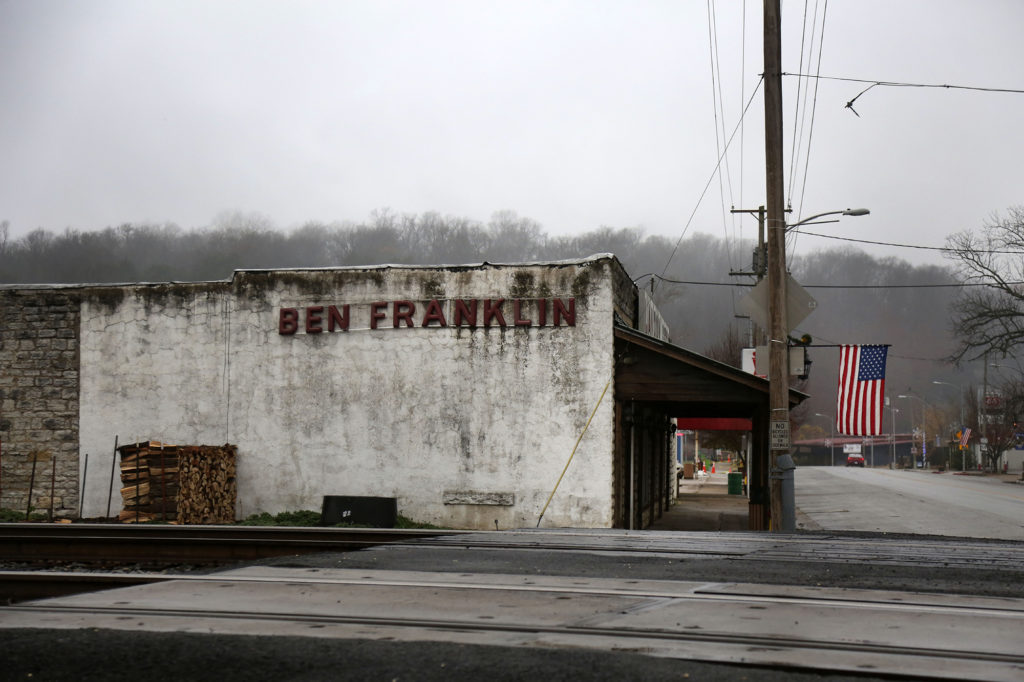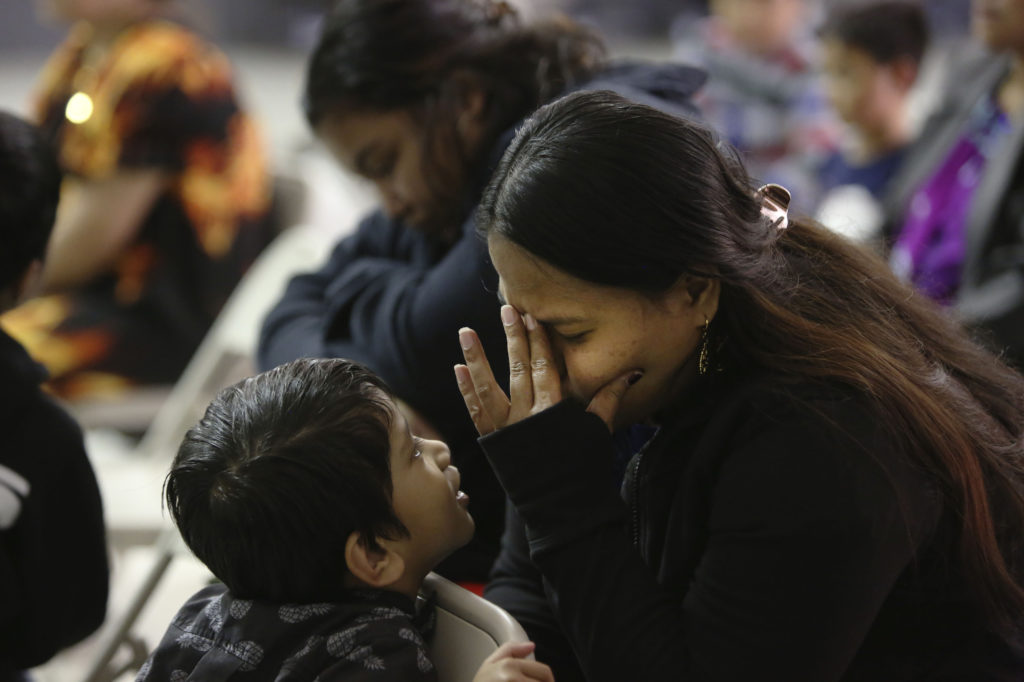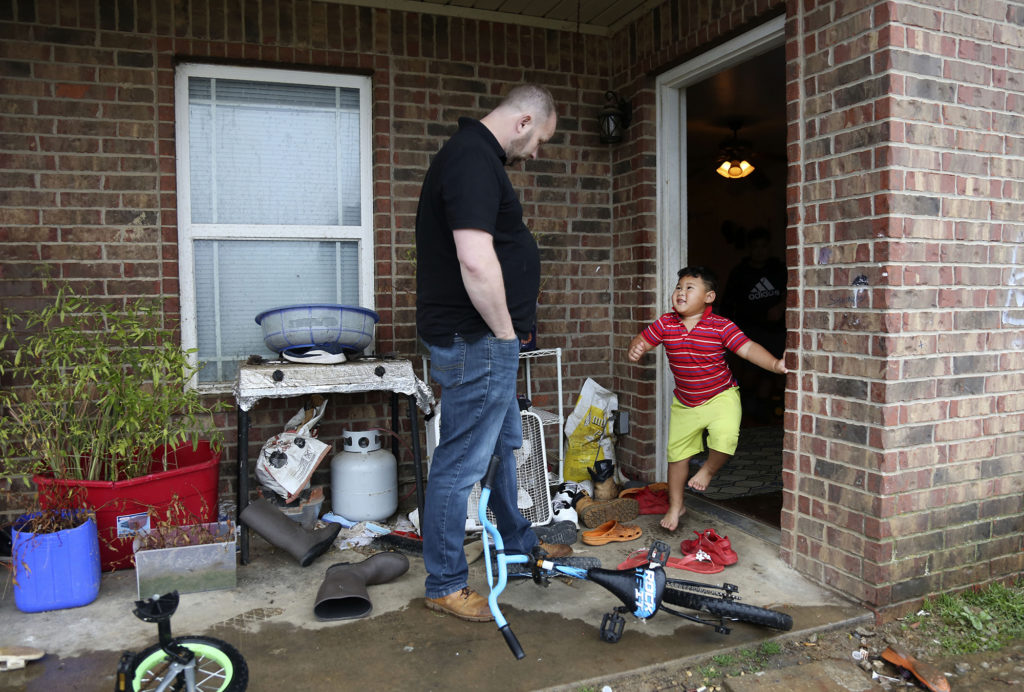
NOEL, Mo. (AP) — Thirty miles of rural Missouri separate the two churches, and so much else. One is mostly white; the other hosts services in five languages for a flock that spans the world.
Still, every Tuesday the pastors meet midway between their houses of worship, seeking each other’s counsel, sharing their joys — and, more often, their burdens. Because in these pandemic-wracked days, they are sometimes overwhelmed by the crucible of ministering.
“Whether it be the death of a member, whether it be somebody upset, whether it be losing funding, whether it be just all sorts of different things, or maybe just our own depression, just dealing with being locked up at home,” said pastor Mike Leake at Calvary of Neosho.
And still, they persevere. While they both want to keep parishioners safe, they are determined to carry on with in-person services as long as members of their congregations are eager to attend.
“Our mission to profess the Gospel doesn’t end because the coronavirus is here,” said pastor Joshua Manning of the Community Baptist Church in Noel. “And so, we have to still function. We still have to preach. We still have to meet together.”
___
On a given Sunday, Community Baptist offers five services for five international congregations — in all, about 200 people — who worship at the church in Noel.
The town of 1,800 in the far southwest corner of Missouri has a large immigrant population, including Pacific Islanders, Mexicans, Sudanese and refugees from Myanmar. Most arrived here drawn by the opportunity of a job at the local Tyson Foods chicken processing plant.
At the start of June, McDonald County, where Noel is located, had fewer than two dozen confirmed cases of COVID-19. By June 23, 498 cases had been confirmed. Three days later, Tyson Foods announced that 371 employees tested positive for COVID-19 at its chicken processing plant in Noel. Tyson said it is implementing a new COVID monitoring strategy, but did not provide an update on confirmed cases up to December despite multiple requests.
At the onset of the pandemic, Manning closed the church for two months to follow safety guidelines. When he reopened it in June, he contracted the virus and was forced to shut it down again for a month.
His wife, Lauren, and three children also were sickened, as was Lauren’s grandfather, who died in October. And the church’s Spanish-language pastor, Roberto Nunez, died in July. A pastor has been driving more than five hours back and forth from Nebraska to lead the Spanish service each Sunday.
Amid all of this, Manning has pushed ahead.
“I have to basically balance two different things,” the 41-year-old pastor said. “I have to preach the Gospel. The church has to meet together. Businesses have to run. Without the poultry industry running, people don’t get paid, and people don’t eat.
“You have to have school, you have to have those things. And doing any of those things causes risk.”
Speaking in his second-floor office after a day of back-to-back services, Manning said the church was still “affected by COVID, but … the effect isn’t largely negative.”
The pandemic, he said, also brought a revival of faith. He estimated that in the past three months, a record 50 people have been baptized in the five congregations that worship in his church.
“The spiritual hunger of people is very different than what it was before,” Manning said.
Melody Binejal, 27, a Hawaiian of Marshallese parents who moved to Noel this year, was baptized on a recent Sunday at the church. Her father-in-law died after contracting the virus.
It’s a struggle, she said, but “it’s the perfect time to just give your life to Jesus, because you never know when or what time he’s going to arrive and just take everything away from us.”
___
A 30-mile drive north from Noel is the town of Neosho, nicknamed the Flower Box City. Its population of 12,000 is far less diverse than Noel’s — roughly 85 percent white, with relatively few immigrants.
Back in March, the coronavirus seemed to pose no threat to southwest Missouri as its toll mounted overseas and in a few distant parts of the U.S.
But late on March 9, a day before Calvary of Neosho was to send a mission trip to Mexico, Leake learned that the International Mission Board had urged churches to cancel such trips. Calvary did so.
Leake held an in-person service the next Sunday and then, following state and local restrictions, halted such services for seven weeks while resorting to online worship.
On May 10, as the restrictions on indoor gatherings eased, Leake resumed services at the church. Worshipers were asked to maintain 6 feet of social distance and no longer gather in prayer circles. The offering plate was no longer passed through the congregation; instead, donation baskets were placed at exits.
When the church reopened, drawing a congregation about half the normal size, Neosho’s Newton County of 58,000 people had recorded only 19 cases. By July 1, there had been 427 cases; by late November, about 3,000. The county’s COVID-19 death toll stood at one in early June; it’s now 40.
Like other Neosho pastors, Leake has wrestled with whether Calvary should again halt in-person services. Instead, he’s encouraging congregants to stay away if they’re sick or at risk.
As of late November, no one in the congregation had died of COVID-19, Leake said, but several contracted the disease or had friends or relatives who died.
Throughout the pandemic, Leake has encouraged Calvary worshipers to wear masks, but has not mandated it. Scott Tucker, who works at a local golf course, is in the majority that does not.
“I’m not going to live in fear,” he said. “Whatever happens here on this Earth isn’t going to affect my eternity. … If I die from COVID, then I’m better off anyway, because I know where I’m going.”
Leake, 39, says the issue has troubled many local pastors.
“If you had a mask mandate, you’d have people leave your church,” Leake said. “By the same token, you’d have some people leaving if you don’t mandate masks.”
It’s hard being a minister these days, he said. “Some weeks I don’t know a single pastor who wants to be pastoring right now.”
From The Associated Press. May not be republished. Crary reported from New York. Associated Press journalist Jim Salter in St. Louis contributed to this report. AP religion coverage receives support from the Lilly Endowment through the Religion News Foundation. The AP is solely responsible for this content.
